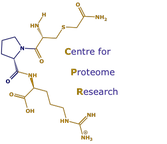Betes Noir
04 05, 12
Definition: [LINK]
I am given a lot of material to read; reports, thesis chapters, paper drafts, etc. I try to comment on content, but there are always those nagging little distractors, the poor language, the random use of commas and other little niggles that impair my ability to read the science. To keep my chakras centered, I am going to compile a list here, and will add to it from time to time. I am hoping that this can reduce the reading cycle by one whole iteration if I do this. Thus, in no particular order:
Use of ‘found to be’, ‘shown to be’ and similar
Take this sentence fragment; “The molecular weight of protein X was found to be 34,510”. Sounds fine, doesn’t it? But, of course it was ‘found’, otherwise this sentence couldn’t be written. So, let’s try again “the molecular weight of protein X was 34,510”. To me this sounds punchier, more assertive and wastes fewer words. We’ll come back to molecular weight later.
Here’s another; “Bloggs et al. (1999) discovered that protein X was a binding partner of protein Y”. How about “Protein X is a binding partner of protein Y (Bloggs et al., 1999).
There are many similar constructions, and you should aim to avoid them, unless you are specifically making a point about the researcher(s), including yourself, who did the work. I suggest that you search each document for the following words ‘found’, ‘showed’ or ‘shown’, ‘discovered’, ‘demonstrated’ - I predict that everywhere this is used, the sentence can be improved by rewriting to eliminate that word/phrase.
Random capitalisation of nouns
I have no idea where this comes from. I have seen: ‘Acetic acid’, ‘Acetic Acid’ and even ‘acetic Acid’. All wrong.
Capital letters are used for the start of sentences, abbreviations (DNA) proper names (Rob, Coomassie*) and trade names (Rapigest). Simple rule: never use a capital letter unless you know why. There are some more subtle variations on this, but these will crop up rarely.
* why?
Bizarre lab jargon that should never be seen in print
Here’s a few to get us started:
‘crashed out’ (precipitated)
‘spun’ (centrifuged)
‘supernatant’ is an adjective, as in ‘supernatant fraction’ - it is not a noun- ‘the supernatant was…’
This one drives me nuts!
To me, it is a matter of principle that one understands the distinction between ‘principal’ and ‘principle’
A ‘principle investigator’ would be examining moral codes and conduct.
A ‘principal investigator’ is the person with overall responsibility for the project.
(BBSRC, MRC, many grant applicants all get this wrong, all the time - sigh!)
Principle is a noun -
Principal is usually used as an adjective - the ‘principal investigator’ but can sometimes (rarely) be a noun - e.g. the Principal of a college, and in that instance, would be capitalised.
So, in “The Principal has no principles”, just remember that ‘a comes before e’ (in the alphabet)
I am given a lot of material to read; reports, thesis chapters, paper drafts, etc. I try to comment on content, but there are always those nagging little distractors, the poor language, the random use of commas and other little niggles that impair my ability to read the science. To keep my chakras centered, I am going to compile a list here, and will add to it from time to time. I am hoping that this can reduce the reading cycle by one whole iteration if I do this. Thus, in no particular order:
Use of ‘found to be’, ‘shown to be’ and similar
Take this sentence fragment; “The molecular weight of protein X was found to be 34,510”. Sounds fine, doesn’t it? But, of course it was ‘found’, otherwise this sentence couldn’t be written. So, let’s try again “the molecular weight of protein X was 34,510”. To me this sounds punchier, more assertive and wastes fewer words. We’ll come back to molecular weight later.
Here’s another; “Bloggs et al. (1999) discovered that protein X was a binding partner of protein Y”. How about “Protein X is a binding partner of protein Y (Bloggs et al., 1999).
There are many similar constructions, and you should aim to avoid them, unless you are specifically making a point about the researcher(s), including yourself, who did the work. I suggest that you search each document for the following words ‘found’, ‘showed’ or ‘shown’, ‘discovered’, ‘demonstrated’ - I predict that everywhere this is used, the sentence can be improved by rewriting to eliminate that word/phrase.
Random capitalisation of nouns
I have no idea where this comes from. I have seen: ‘Acetic acid’, ‘Acetic Acid’ and even ‘acetic Acid’. All wrong.
Capital letters are used for the start of sentences, abbreviations (DNA) proper names (Rob, Coomassie*) and trade names (Rapigest). Simple rule: never use a capital letter unless you know why. There are some more subtle variations on this, but these will crop up rarely.
* why?
Bizarre lab jargon that should never be seen in print
Here’s a few to get us started:
‘crashed out’ (precipitated)
‘spun’ (centrifuged)
‘supernatant’ is an adjective, as in ‘supernatant fraction’ - it is not a noun- ‘the supernatant was…’
This one drives me nuts!
To me, it is a matter of principle that one understands the distinction between ‘principal’ and ‘principle’
A ‘principle investigator’ would be examining moral codes and conduct.
A ‘principal investigator’ is the person with overall responsibility for the project.
(BBSRC, MRC, many grant applicants all get this wrong, all the time - sigh!)
Principle is a noun -
Principal is usually used as an adjective - the ‘principal investigator’ but can sometimes (rarely) be a noun - e.g. the Principal of a college, and in that instance, would be capitalised.
So, in “The Principal has no principles”, just remember that ‘a comes before e’ (in the alphabet)
